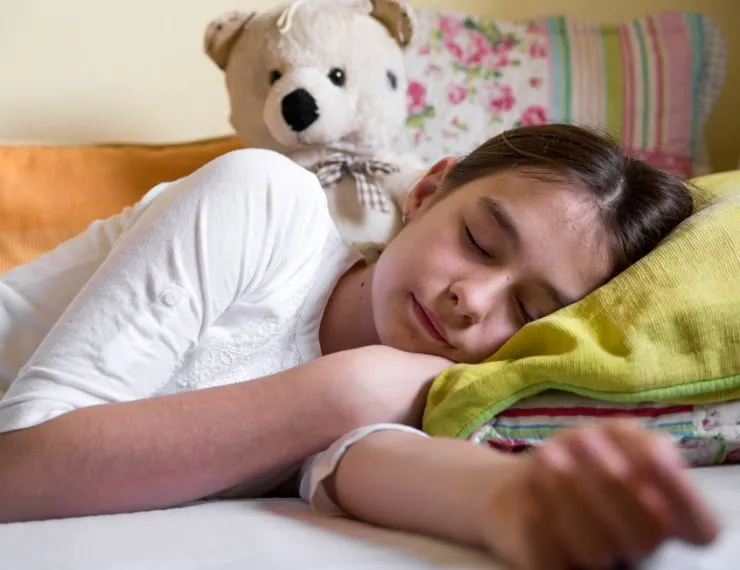
As teenagers find their new routines back in school and school workload ramps up, many are reminiscing about their carefree summer days that allowed them to sleep in and stay up late. Truly, many of us wish there were more hours in the day to get things done, but in reality, we should be wishing for more hours in the night so we could sleep more!
Unfortunately, insufficient sleep in teenagers is common and especially detrimental in high school students. Teens are biologically driven to stay up late and to wake up later in the morning, but most don’t have the option to sleep in and thus the total hours of sleep they get are cut short. The CDC’s Youth Risk Behavior Survey looked at data from 2009-2021 and found that only about one third of teens sleep more than 8 hours (the recommended amount for 13-17 years olds is 8-10 hours) and that one third actually get less than 6 hours per night. The average for this age group as of 2021 was reported at 7 1/4 hours of sleep.
Lack of sleep has obvious consequences such as decreased school attention and function, increased risk of injury in sports and higher risk of physical and mental health problems. Sleep deprivation will make your teenager (and children in general) more likely to be moody, irritable and cranky. This study also adds that in general, students that sleep less than seven hours per night are simply more likely to make risky behavioral choices (infrequent seatbelt use or bike helmet use, texting while driving, drinking and driving, and riding with a drunk driver).
Parents should make an effort to talk to their teens about sleep and the effects that insufficient sleep can have on them. While ideally you can create a sleep schedule that works for the family, a good place to start is helping them to improve their sleep hygiene to enhance the sleep they do manage to get. A few quick recommendations include making sure the room is dark, quiet and relatively cool and that screens are turned off at least 30 minutes to 1 hour before the time they hope to fall asleep. Also make sure that your teen’s phone or device has Night mode or Night mode enabled (this decreases blue light emission and decreases eye strain in low light settings.)
Younger school children (5-12 year olds) require 10-12 hours of sleep. If you still have kids this age, it is best to establish good sleep habits in the early school years so that they are set up to be better sleepers in their teenage years. For reference, here are recommended hours of sleep for each age group according to the American Academy of Sleep Medicine:
| Age range | Recommended sleep |
| Babies (4 to 12 months) | 12 to 16 hours, including naps. |
| Toddlers (12 to 24 months) | 11 to 14 hours, including naps. |
| Preschoolers (3 to 5 years) | 10 to 13 hours, may include a nap. |
| School-aged kids (6 to 12 years) | 9 to 12 hours. |
| Teenagers (13 to 18 years) | 8 to 10 hours. |
If your child is having trouble sleeping or is getting adequate sleep, yet still waking up and feeling unrested, please talk to your pediatrician as it could be a sign of poor sleep quality or an underlying health condition.
Read Also: Get Your Teenager (and Yourself) to Bed!
Jackie Phillips, MD, September, 2024
Take the first step towards improving your child’s health with pediatric integrative medicine. Call The Village Doctor at (650) 851-4747 or Contact us to learn more about the practice.


